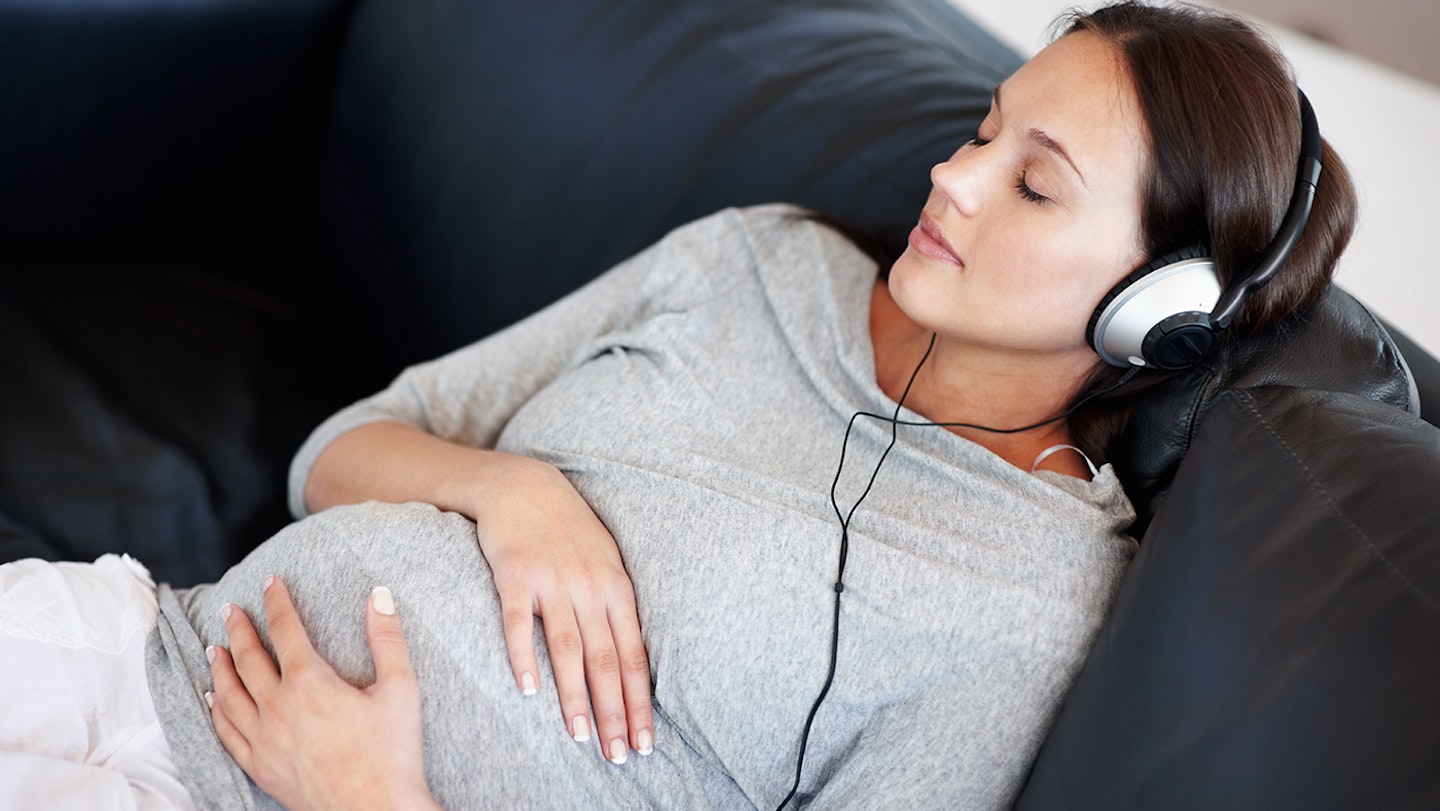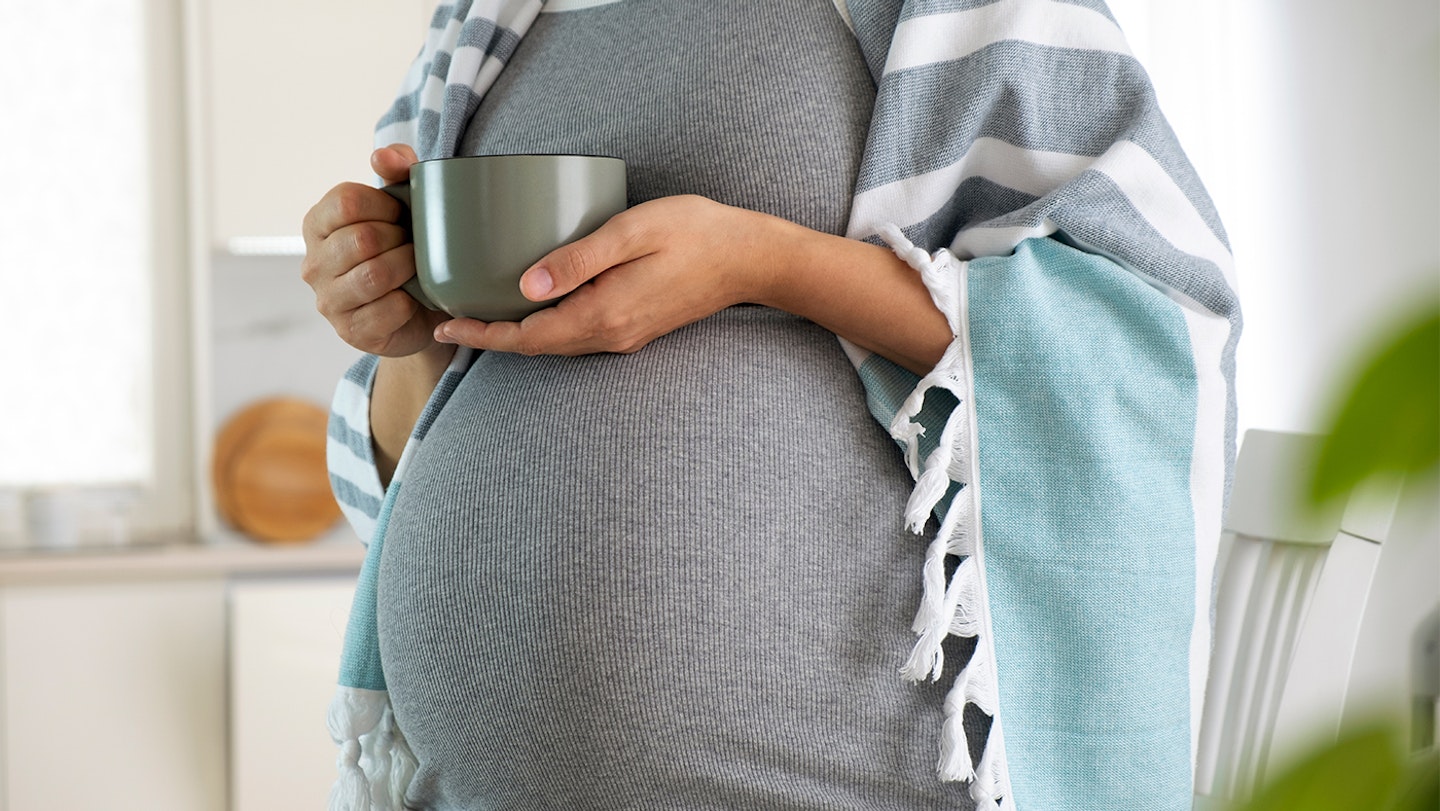Aside from the delightful pregnancy symptoms such as morning sickness and heartburn, being pregnant is filled with exciting moments, none more so than feeling your baby move for the first time. An incredible part of being pregnant, from then on, every tiny movement helps you feel closer to them so it's understandable that you might be keen to find out how to get baby to move for you or your partner.
We spoke to Dr Shazia Malik, Consultant Gynaecologist and Obstetrician at The Portland Hospital (part of HCA Healthcare UK) to find out more.
When do babies start moving?
Babies actually start moving inside the womb at 7-8 weeks. Of course, they are too tiny at this stage for you to feel these movements. However, at your 12-week scan, you will see your baby dancing inside your womb.
Exactly when you can feel your baby move varies from one woman to another and depends on whether it is your first pregnancy or not – it is common to feel movements a little earlier in subsequent pregnancies, even as early as 16 weeks. However, most commonly you will feel movements between 18-24 weeks pregnant.
If you are a first-time mum, then it’s not unusual to feel the first recognisable flutters at around 20 weeks pregnant or more. If you haven’t felt any movements at all by 24 weeks pregnant, please do get checked by your doctor or midwife who can listen to your baby’s heartbeat or organise an ultrasound scan.
Movements can vary in frequency and strength from day to day, but by 28 weeks pregnant there should be a recognisable pattern for your baby, and it’s really helpful to get an idea of what is normal for your baby so that you can recognise if something doesn't feel right.
How to get baby to move
Every baby has its own unique pattern of movement, and as the pregnancy progresses you will start to recognise your own baby’s normal movement routine. This is important as it is a change in what is normal for your baby that should guide whether you need to get checked or not – not a specific number of movements as such.
Some mothers-to-be may notice that their baby is more active around specific times in the day. For example, they may repeatedly move in the evening when you’re lying down or are relaxed.
If you have been active or had a particularly busy day, you may not have noticed baby moving, so take some time to monitor your baby’s movements.

Tried and tested
While these won't always work for every mum and baby if you want to know how to get baby to move, here are a few things you can try...
Take it easy
Deep relaxation can help you notice your baby’s movements more clearly, so try some breathing exercises or mindfulness to tune into your body and focus on the baby’s activity. Why not try some pregnancy yoga?
Lay back
Many women notice more movements when they lie down at night and lying down with a little tilt to your left will help you feel whether your baby is active, or the movements are indeed reduced compared to normal. If this is the case, please do contact your maternity unit – whatever the time.
Make some noise
A baby’s hearing is quite developed towards the end of the second trimester so you can make some noise, either through playing music or talking and singing to your baby, to get them moving.
Have a sugary snack
A blood sugar spike can also influence your baby, so you can have a sugary snack to give the baby a boost of energy. A cold drink might also help.
Pop the kettle on
While you shouldn't consume more than 200mg of caffeine in a day while expecting, if you haven't had a cup of coffee yet, the caffeine can have a similar effect as sugar

Urban legends
While some mums-to-be do find success with the following tips, many of these are less proven to work.
Grab a torch
Now it might feel a bit strange, but shining a torch on your belly from halfway through your second trimester when baby can possibly notice the difference between light and dark may potentially intrigue your upcoming arrival.
Get a sweat on
Although the type of exercise you can do while pregnant should be limited, a short burst of exercise, for example jogging in one place, can wake your baby up a bit.
Turn up the heat
We've all heard the myth that eating a curry can help bring on labour in your last few weeks of pregnancy but it's also said that eating spicy food in general can get your bub dancing.
If after an hour you haven’t felt your baby being as active as usual, please go to your maternity unit and get checked, at any time of day or night.
If you are feeling unwell or have abdominal pain or any vaginal bleeding or discharge, do not wait to get checked, go straight away. Most of the time everything is fine at the check-up but depending on what is found you may be referred for an ultrasound scan, bloods, or a doctor.

Will this be different in the second or third trimester?
A baby's movement will feel like intermittent flutters in the early stages of pregnancy. However, as a baby develops, the kicks should become stronger and more regular.
According to studies, women experience a steady increase in foetal movement strength and frequency until 28-32 weeks*. By week 24 in your second trimester, your baby may be experiencing hiccups, which feel like small twitches. As you enter your third trimester, by week 28 the baby’s movements are recognisable kicks and can sometimes even make you feel winded!
* Bradford, B. and Maude, R., 2018. Maternal perception of fetal movements in the third trimester: A qualitative description. Women and Birth, 31(5), pp.e287-e293.
When should I worry about baby not moving?
Lack of movement can indicate that the baby is sleeping, which may explain why a baby's motions have reduced. But this shouldn’t change compared to your baby’s normal pattern of movement, so if you are concerned go in and get checked. Do not wait for the next day or your next appointment as baby’s movements are your way of recognising that all is well with your baby. If the movements reduce or stop it can be a warning sign that your baby needs urgent attention.
It’s usually the case that the baby is fine at the check-up, but sometimes you might need urgent intervention to save your baby and it is these instances where reaching out for prompt assessment and help can save a baby. It’s never too much trouble for your maternity team to see you, and it’s okay if you need to go in more than once even if everything was normal the last time you went in. If you are concerned, it’s better to get checked no matter how many times. If you are near your due date it may be that you are advised to have the labour induced – don’t let this affect whether you go and get your baby checked though as a delay can make a real difference to a baby’s wellbeing.
About the expert
Dr Shazia Malik is a Consultant Gynaecologist and Obstetrician at The Portland Hospital. She has worked as a Consultant Obstetrician and Gynaecologist as part of the Recurrent Miscarriage team at St Mary’s Hospital, Paddington and as a Consultant in IVF at CRGH – one of the country’s leading IVF units.
Whilst becoming a Subspecialist, Shazia pursued her interest in Gynaecological Ultrasound at Kings College Hospital, and is currently lead for early pregnancy/emergency gynaecology at Chase Farm Hospital, alongside a busy Obstetric workload.
